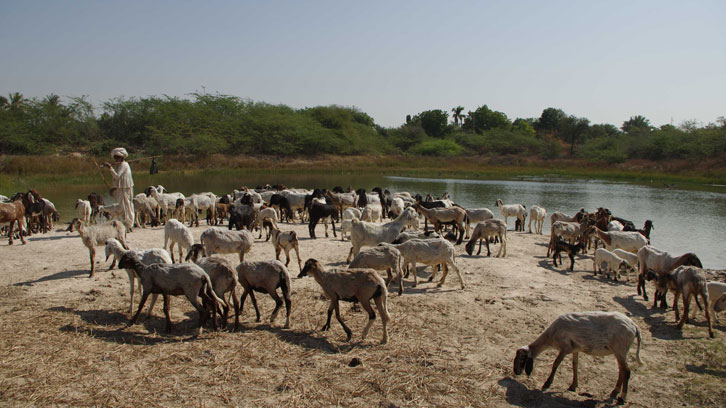Kin Groups and Distribution of Traditional Ecological Knowledge

People whose daily subsistence directly depends on the use of natural resources (hunter-gatherers, farmers, fishermen and herders) usually hold a deep and detailed knowledge of the natural environment they live in. In many parts of the world, such knowledge systems – that we call Traditional Ecological Knowledge - are undergoing important transformations and, often, loss, due to the multiple social and environmental changes that these societies are faced with, despite the high interest of such bodies of knowledge, that represent a very rich reservoir of resources for the development or maintenance of sustainable livelihoods and to help adaptation to climate changes. Therefore a growing body of research is aiming at understanding how this knowledge is spread across human groups and transmitted, a critical step towards understanding the overall dynamics of these knowledge systems, and finding ways to preserve or help maintain them.
In this new research, a team from the Ethnoecology laboratory (now LASEG: Laboratorio de Análisis de los Socio-Ecosistemas en la Globalizacion), hosted by ICTA at the UAB, did a one-year study with a community of semi-nomadic pastoralists from Gujarat (India), in the framework of the SimulPast project ("Simulating the Past to Understand Human Behaviour" CSD2010-00034 ), a Consolider-Ingenio program that involves 11 Spanish research teams.
During this study, the researchers studied how the knowledge related to four domains of expertise (ethnoveterinary practices, ethnobotany, knowledge about soil properties, knowledge about the local breeds of sheep) is being transmitted and is spread across individuals and social groups, within one village. Using anthropological research methods (participant observation, interviews, questionnaire surveys), they have specifically aimed at understanding how the different social groups to which individuals belong (family, neighbourhood, transhumance group) influence the transmission of traditional ecological knowledge.
The major finding of this study, which is presented in this new article, is to show that the kinship-based groups (extended families, which we call lineages in anthropology), despite being part of the same community, of the same cultural group, actually hold bodies of knowledge that significantly differ one from another. For instance, the same veterinary cure can be used to heal different ailments from one family to the other, or while some extended families know one cure, other families do not know it and do not use it.
These results are important because they show that the transmission of traditional ecological knowledge is not only related to the occupation of individuals or to gendered differences in uses of natural resources, but also to the social organization of the local communities. Therefore the social changes that affect the organization of these communities, such as the changes affecting kinship structures, are also affecting the systems of traditional ecological knowledge.
Institute of Environmental Science and Technology (ICTA)
References
Salpeteur, M.; Patel, H.; Balbo, A. L.; Rubio-Campillo, X.; Madella, M.; Ajithprasad, P.; Reyes-García, V. When Knowledge Follows Blood. Kin Groups and the Distribution of Traditional Ecological Knowledge in a Community of Seminomadic Pastoralists, Gujarat (India). Current Anthropology. 2015, vol. 56, num. 3, p. 471–83. doi: 10.1086/681006.

